
“(We will march the blacks) into the colony under their European superintendents, unarmed and provided only with implements of labor,” and (they)“marched out of the colony in the same manner when employment ceases.”
-Sir George Grey, a governor of the Cape Colony in the eighteen-fifties. As the colonists opened mines and built farms, Grey saw in the black population a source of disposable workers.
"One day I will be the first black president of South Africa."
- Nelson Mandela in 1952
(I have few pictures to highlight this subject. Instead, in juxtaposition to the dark history, I will show images from our trip to a Botanical Garden today in Stellenbosch, South Africa)
In my own fashion this post is a continuation of the story told earlier, "For Want of a Lemon". I have struggled with trying to find words for this topic. Apartheid is a Dutch Afrikans word that means 'separateness'. After the British gave up control of South Africa in the late 1930's there was a large grab for power. The Boers, from the earlier post, had now formed the Afrikans led National Party and came to power in 1948.

From 1948, until the release of Nelson Mandela in 1994, the white minority government (They were less than 10% of the population) sought to protect their status by enacting a series of draconian laws to hold black voices in check. This horrific system came to be known as Apartheid.
It is far beyond the scope of this blog, or my intellect, to even try to describe the history of this period. Libraries have been written on the subject that recount the painful and bloody story with far greater eloquence than I could possibly muster. For the purpose of completeness I have added this short video which provides a brief summary of apartheid laws.
When we first arrived here, both of us are old enough to remember hearing about Apartheid growing up. We knew it was a bad thing but we lived half a world away and it was hard in those days to see how it impacted our daily lives. When we arrived here, we were excited to be in a new country and immersed ourselves in all the wonders we were visiting. We did not yet appreciate what we were seeing.

Over time, as we saw more and more of the country we began to see the legacy of that dark time. So, after 26 years is there healing here? Is there peace and reconciliation?
The short answer is no. Not completely. It is better than the height of the regime but these wounds run deep and the scars are permanent.

Our first clue was watching a news program. The story reported that the South African parliament was being disrupted. The parliament is dominated by the African National Congress, Mandela’s party, and has been since he returned to power. The meeting was being disrupted by other MP’s who curiously were all wearing red. This was an opposing party that was battling the ANC for their failure to deliver on Mandela’s promise of land repatriation.
Mandela had promised that 30% of the arable farming land would be returned to blacks since the land had been taken from them. Mandela died 7 years ago. Today only 8% of that promise has been fulfilled. It is a massively divisive issue here.
I am not qualified to begin a serious discussion for this controversy. Such a talk is way above my pay grade. Ariel Levy, in her excellent article “Who Owns South Africa”, lays out the history. It is well worth the time and investment to read.
I think I understand the basics of the issue. The Dutch Afrikaners are hard working and industrious. Since 1684 they have invested blood and treasure in carving out a homeland here at the end of Africa. Their hard work has paid off and today they have a beautiful, rich nation that is the envy of many. It is understandable that they would think, “Why should I give up any part of my hard earned land? What do I get out if it?”

The answer, of course, is it was never your land to begin with. The white nationalist arguement is a little like a thief stealing your home then investing in it with several upgrades. You demand the return of your property only to have the thief argue, “Well who is going to pay me for the upgrades?”
The land was ‘earned’ on the backs of others labors. The bill is now due and people are upset. They do not want to pay.
It is so contentious of an issue that even our own ignominious President has weighed in on the issue. (After watching a Fox News story of course)

As we have traveled here we noticed the tourist areas here are almost always in white dominated locations. You could easily come here and think you were visiting a white country. However, as we traveled to new towns before reaching our destination you would notice shanty towns, and blacks hitchhiking or walking to work on the free way. We wondered, where is the ‘middle class’ living? Is there a middle class?
We are presently in Stellenbosch, a beautiful little town in the middle of South African Wine country. It could easily be mistaken for Palo Alto California except it is less diverse. Shady trees, charming outdoor cafes and shops, who wouldn’t want to spend time here?

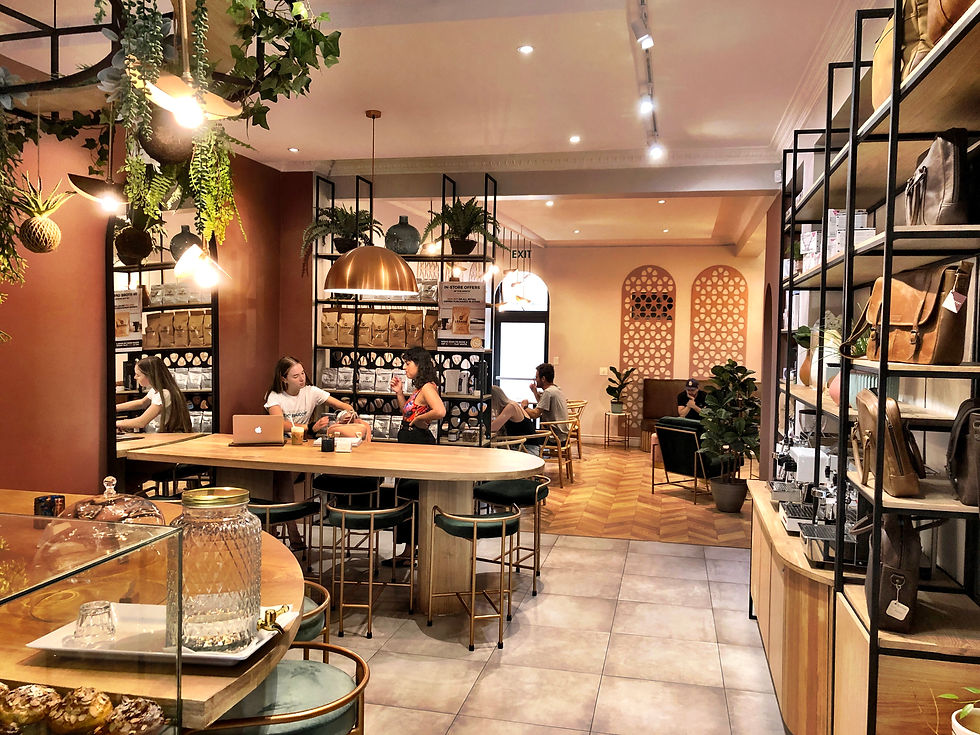
Yet pull back just a little and you see more -
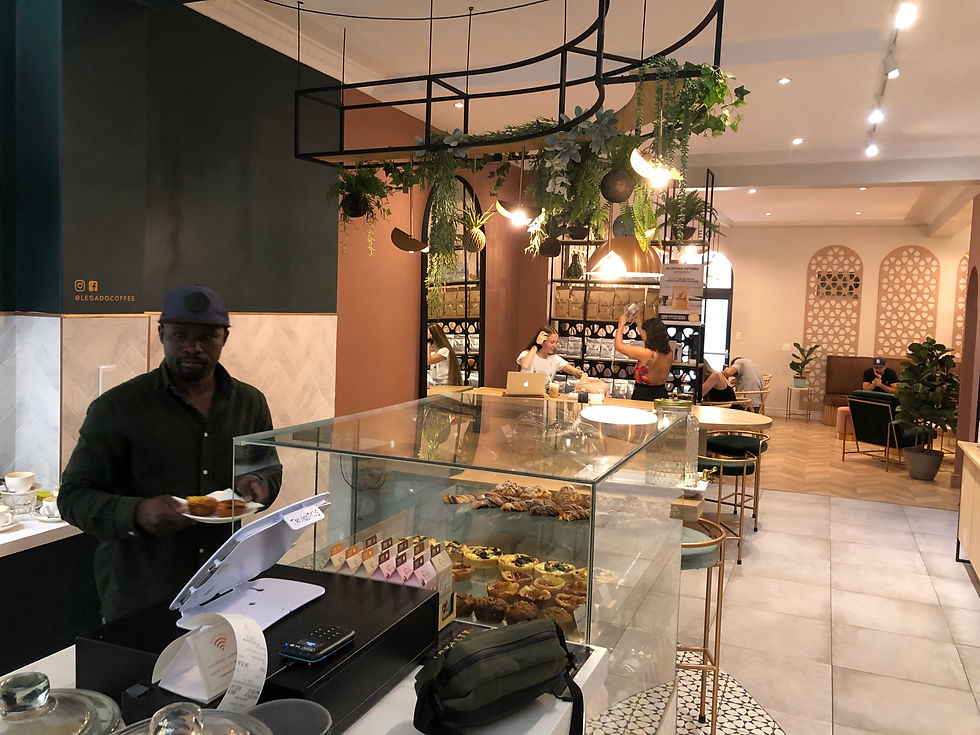
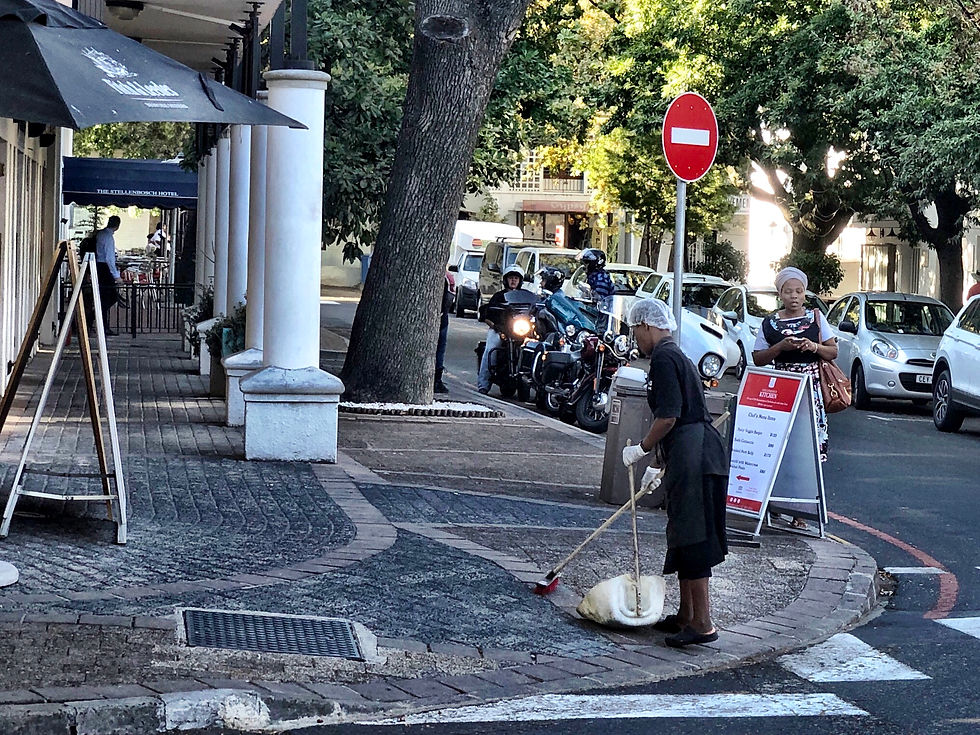
When we could, we would spend time with the locals talking about the country. Older Afrikaners would uniformly lament how the country has declined under Black leadership. They would complain about how they would have to pay taxes to support Blacks and their ‘shiftless’ lifestyles.
One commented, “They just have babies to get a tax benefit from the state”
“They don't pay taxes and we (the whites) have to pay for them”.
You would hear how they feel like they are the persecuted minority and need someone in the government to defend their ‘white rights’. Whites are only 8% of the population.
Given the fact in South Africa Whites on average make 6 times what Blacks do and own 90% of all businesses it was a little hard to feel sympathetic.
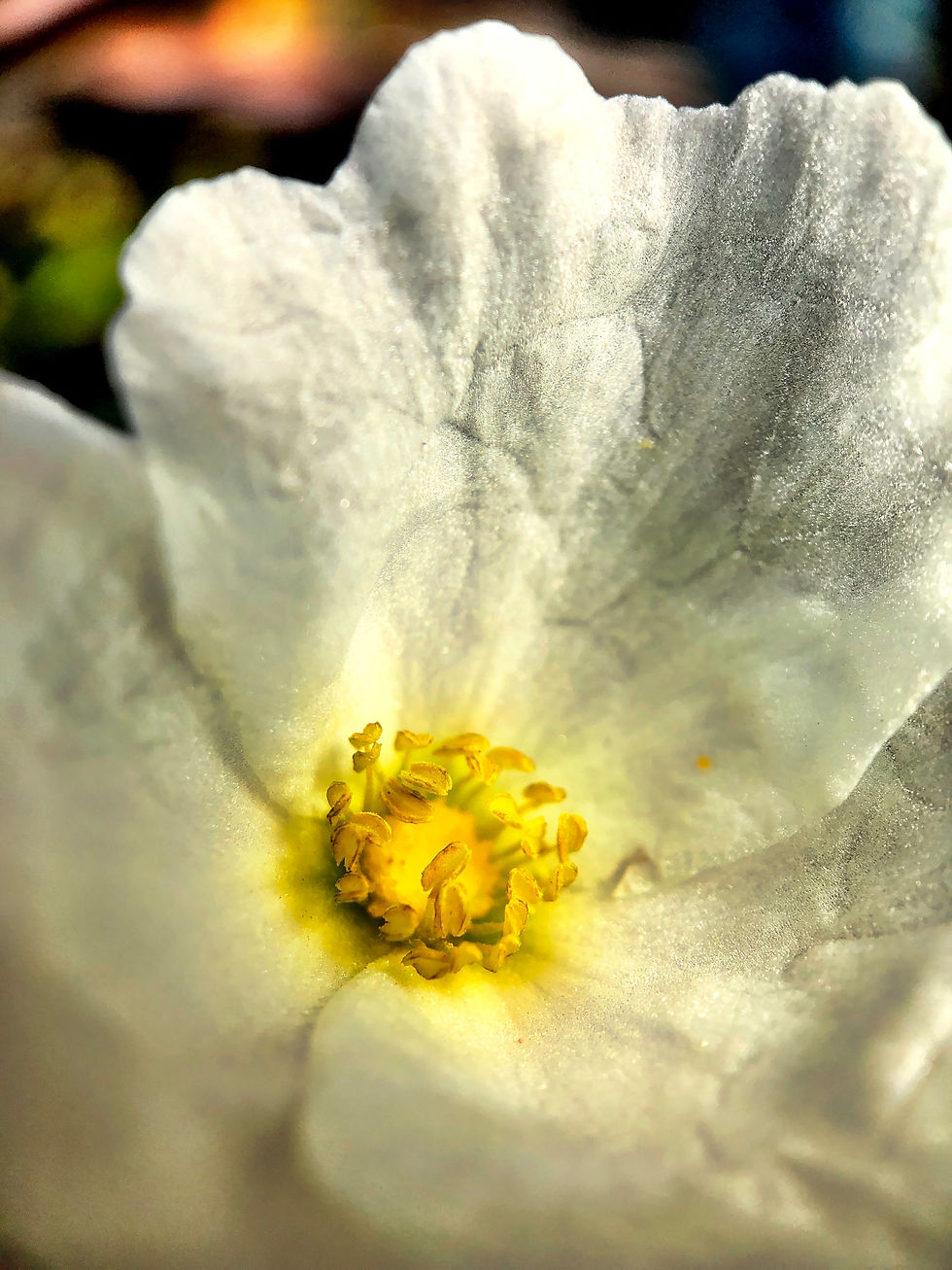
Others would be more progressive.
“Oh I support Blacks. I have a gardner and a maid. I pay them fairly and they love me”
One young college student complained she had trouble getting accepted to her desired school because they wanted more racial diversity and gave more opportunityopportunities to Blacks (or'Colored' - a term still used here)
We saw a group of young girls walk out of school smartly dressed in their uniforms. Even here, at their young age, the white girls walk together and the Black girls do the same.
It appeared to us that the idea of separateness was just that; to keep the two very different worlds each in it’s own enclave. They would mix only when they had to and try not to make eye contact when doing so.
Echoes of this world can be found in our own country, It is just intensely focused here.

I am sure not all of South Africa is like what we witnessed. We have only been here a month and it’s not fair to paint the entire country with such an ugly hue. But we did witness these things and it seemed to us that Apartheid will take generations to heal from and the scars will be deep. The South African constitution lists eleven official languages! Clearly it strives for unity and peace.
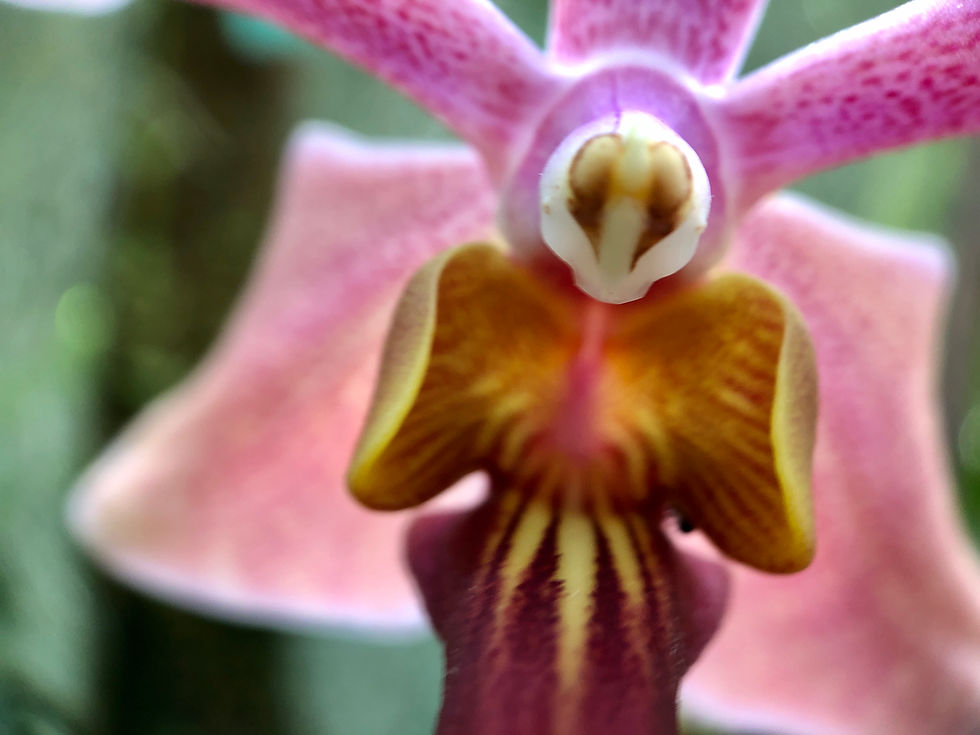
I have never been one to hold much stock in the notion of “White Privlege”. My family was poor and I struggled and worked hard to achieve my success, such as it is. I have read the writings of Ta-Nehisi Coates, and others like him, and discarded the notion of reparations for slavery. I felt that slavery should be placed on the ash heap of history and such notions of payment for crimes committed by my forefathers only will enflame tensions.
However, I have said before, travel changes you. After my time here in this country where racial injustice was so intense and focused, I am not sure how I feel anymore. I know I have changed and I can see better now.
I do know for years I have been told that the country needs a deep and prolonged conversation about race. The beginning of any conversation is a willingness to listen to the other person and be empathetic to their world view. You want to treat them with the dignity that you desire. You should, at the very least, acknowledge that you hear and feel another’s pain. It’s a beginning.

I do not think the answer lies in guilt about enjoying the beauty of this great nation. There is much to savor here and it is a privilege to visit. We will leave here very impressed with this garden; this eden.
I do think though that you have to be sensitive to what you are seeing and acknowledge the price that was paid to build it. Much was sacrificed here and that legacy should be honored.
America, as flawed as it is, remains an important beacon of hope. In America, a Nigerian man can married a white woman. Their one son would later become the President of the United States. That is no small thing. That cannot happen here. At least not yet.
"Tonight, we gather to affirm the greatness of our nation - not because of the height of our skyscrapers, or the power of our military, or the size of our economy. Our pride is based on a very simple premise, summed up in a declaration made over two hundred years ago."
-Barack Obama
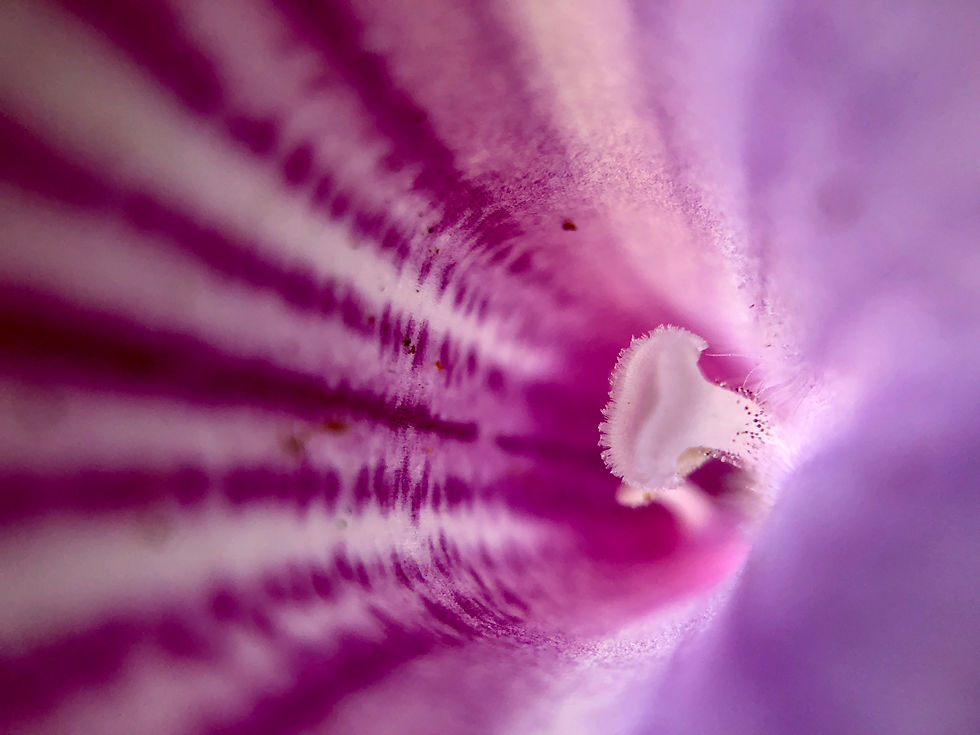
Kommentare